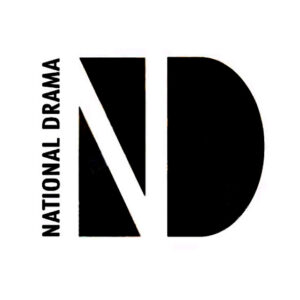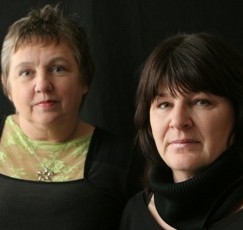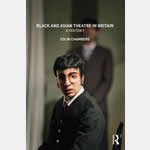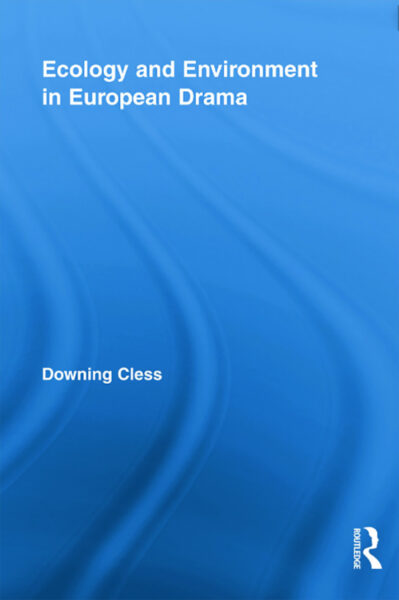
Editorial

Volume 3 Editorial
In our last issue of Drama Research we celebrated the forthcoming award of an MBE to Dorothy Heathcote by dedicating the issue to that legendary drama practitioner. In the space of a year the context in which we find ourselves in this issue is much changed: Dorothy Heathcote did, indeed, receive her MBE award but passed away on 8th October 2011; and so in this issue we are in a position of bearing witness to her remarkable life. To do so we have created a new category for articles published here: that of Testimony.

Volume 3 Editorial
In our last issue of Drama Research we celebrated the forthcoming award of an MBE to Dorothy Heathcote by dedicating the issue to that legendary drama practitioner. In the space of a year the context in which we find ourselves in this issue is much changed: Dorothy Heathcote did, indeed, receive her MBE award but passed away on 8th October 2011; and so in this issue we are in a position of bearing witness to her remarkable life. To do so we have created a new category for articles published here: that of Testimony.
Articles

‘Superteachers’, saints and solitaires: an investigation into Advanced Skills Teachers of Drama
Since the Advanced Skills Teacher (AST) grade was introduced over 4000 have been registered.

Recognising the Drama Classroom as a Site for Critical Social Inquiry
The author argues that developing students’ ability to think autonomously and critically should be regarded as an educational priority.

Integrating 10th grade curriculum through Drama: the Greek traditional practice of Xysta
In this paper we present the design and implementation of a cross‐curriculum project that was carried out among grade 10 students in a public school in Athens.

From St. Petersburg to Brixton: How Bakhtin’s concept of ‘Speech Genres’ informs the spoken language of role in the first years of schooling
I consider how spoken language of drama might be assessed firstly by using Bakhtin’s understanding of the influences that shape spoken language, and secondly by drawing on aspects of Gee’s (1999) model of Critical Discourse Analysis (CDA).

Devising monologues on domestic violence for the development of inter‐professional training and community support services
The exploration of devised theatre towards producing case study scenarios is at the core of current drama practice as a powerful means of both giving voice to vulnerable community groups and contributing to inter‐professional education training purposes.

Creative Learning Through Drama
The article is based on a study, Creative learning through drama, carried out by the authors in 2007‐2009 on creative learning through drama.

A Question of Difference: Understanding Conflict Management Through Applied Drama
By playing with different models of human conflict, the article examines how applied drama can help in the process of conflict management.

‘Superteachers’, saints and solitaires: an investigation into Advanced Skills Teachers of Drama
Since the Advanced Skills Teacher (AST) grade was introduced over 4000 have been registered.

Recognising the Drama Classroom as a Site for Critical Social Inquiry
The author argues that developing students’ ability to think autonomously and critically should be regarded as an educational priority.

Integrating 10th grade curriculum through Drama: the Greek traditional practice of Xysta
In this paper we present the design and implementation of a cross‐curriculum project that was carried out among grade 10 students in a public school in Athens.

From St. Petersburg to Brixton: How Bakhtin’s concept of ‘Speech Genres’ informs the spoken language of role in the first years of schooling
I consider how spoken language of drama might be assessed firstly by using Bakhtin’s understanding of the influences that shape spoken language, and secondly by drawing on aspects of Gee’s (1999) model of Critical Discourse Analysis (CDA).

Devising monologues on domestic violence for the development of inter‐professional training and community support services
The exploration of devised theatre towards producing case study scenarios is at the core of current drama practice as a powerful means of both giving voice to vulnerable community groups and contributing to inter‐professional education training purposes.

Creative Learning Through Drama
The article is based on a study, Creative learning through drama, carried out by the authors in 2007‐2009 on creative learning through drama.

A Question of Difference: Understanding Conflict Management Through Applied Drama
By playing with different models of human conflict, the article examines how applied drama can help in the process of conflict management.
Testimony

Reconsidering Dorothy Heathcote’s Educational Legacy
In this article, David Booth reflects on the impact of Dorothy Heathcote on education and educators, internationally, viewing her life’s work, the changes she brought about through her teaching, writing and speaking over the last fifty years, especially with universities and academic writers of drama education.
He looks back to see where we are today because of her journey.

Reconsidering Dorothy Heathcote’s Educational Legacy
In this article, David Booth reflects on the impact of Dorothy Heathcote on education and educators, internationally, viewing her life’s work, the changes she brought about through her teaching, writing and speaking over the last fifty years, especially with universities and academic writers of drama education.
He looks back to see where we are today because of her journey.
Emergent Researcher

How is responsibility for group work shared in a GCSE Drama class?
This paper investigates how responsibility for group work is shared in a GCSE Drama class in order to gain a greater understanding of how successful group work is achieved.

How is responsibility for group work shared in a GCSE Drama class?
This paper investigates how responsibility for group work is shared in a GCSE Drama class in order to gain a greater understanding of how successful group work is achieved.
Book Reviews

Black and Asian Theatre in Britain – A History
Black and Asian Theatre in Britain is an unprecedented study tracing the history of ‘the Other’ through the ages in British theatre. The diverse and often contradictory aspects of this history are expertly drawn together to provide a detailed background to the work of African, Asian, and Caribbean diasporic companies and practitioners.
Colin Chambers examines early forms of blackface and other representations in the sixteenth century, through to the emergence of black and Asian actors, companies, and theatre groups in their own right.
By Colin Chambers.

Ecology and Environment in European Drama
Looking at European drama through an ecological lens, this book chronicles nature and the environment as primary topics in major plays from ancient to recent times. Cless focuses on the few, yet well-known plays in which nature is at stake in the action or the environment is a dramatic force. Though theatre predominantly explores human and cultural themes, these plays fully display the power of the other-than-human world and its endangerment during the history of Europe.
By Downing Cless

Black and Asian Theatre in Britain – A History
Black and Asian Theatre in Britain is an unprecedented study tracing the history of ‘the Other’ through the ages in British theatre. The diverse and often contradictory aspects of this history are expertly drawn together to provide a detailed background to the work of African, Asian, and Caribbean diasporic companies and practitioners.
Colin Chambers examines early forms of blackface and other representations in the sixteenth century, through to the emergence of black and Asian actors, companies, and theatre groups in their own right.
By Colin Chambers.

Ecology and Environment in European Drama
Looking at European drama through an ecological lens, this book chronicles nature and the environment as primary topics in major plays from ancient to recent times. Cless focuses on the few, yet well-known plays in which nature is at stake in the action or the environment is a dramatic force. Though theatre predominantly explores human and cultural themes, these plays fully display the power of the other-than-human world and its endangerment during the history of Europe.
By Downing Cless
Editorial Board

Volume 3 Editorial Board
Pamela Bowell
Amanda Kipling
Chris Lawrence
Marie-Jeanne McNaughton
Ruth Sayers

Volume 3 Editorial Board
Pamela Bowell
Amanda Kipling
Chris Lawrence
Marie-Jeanne McNaughton
Ruth Sayers
Notes on Authors

Volume 3 Notes on Authors
Peter Bannister is Head of Drama at Backwell School, a large secondary comprehensive outside Bristol.

Volume 3 Notes on Authors
Peter Bannister is Head of Drama at Backwell School, a large secondary comprehensive outside Bristol.
Table of Contents

